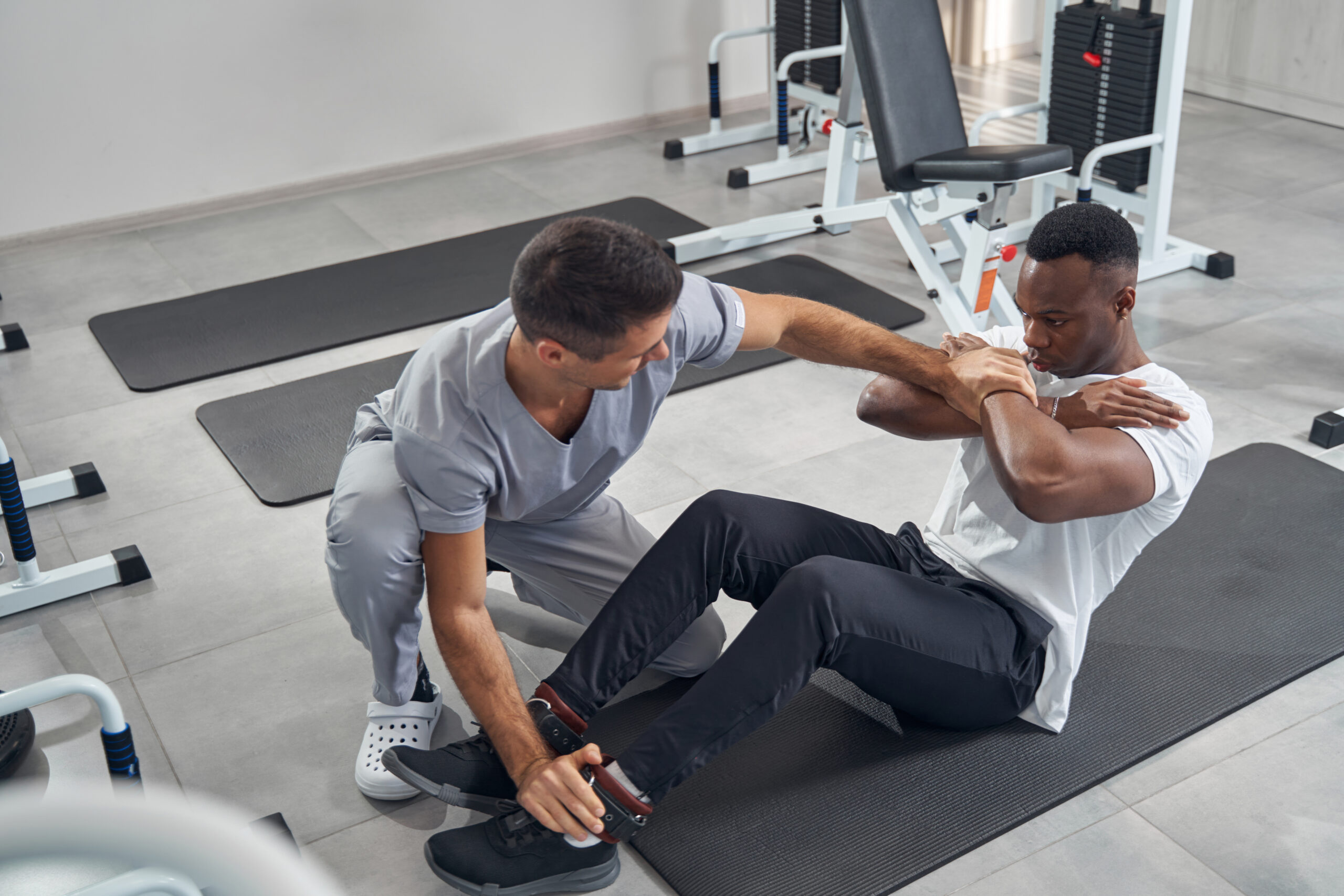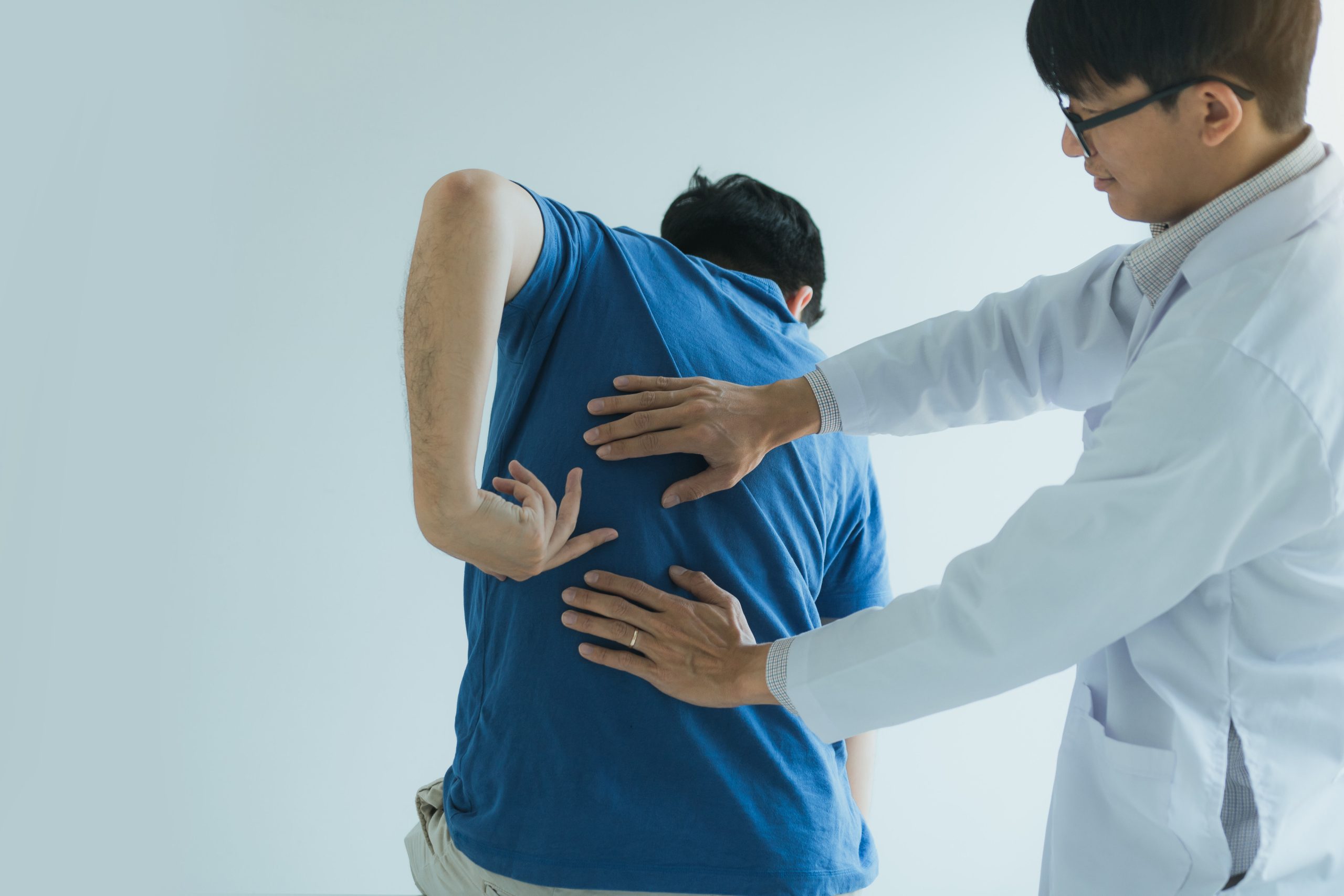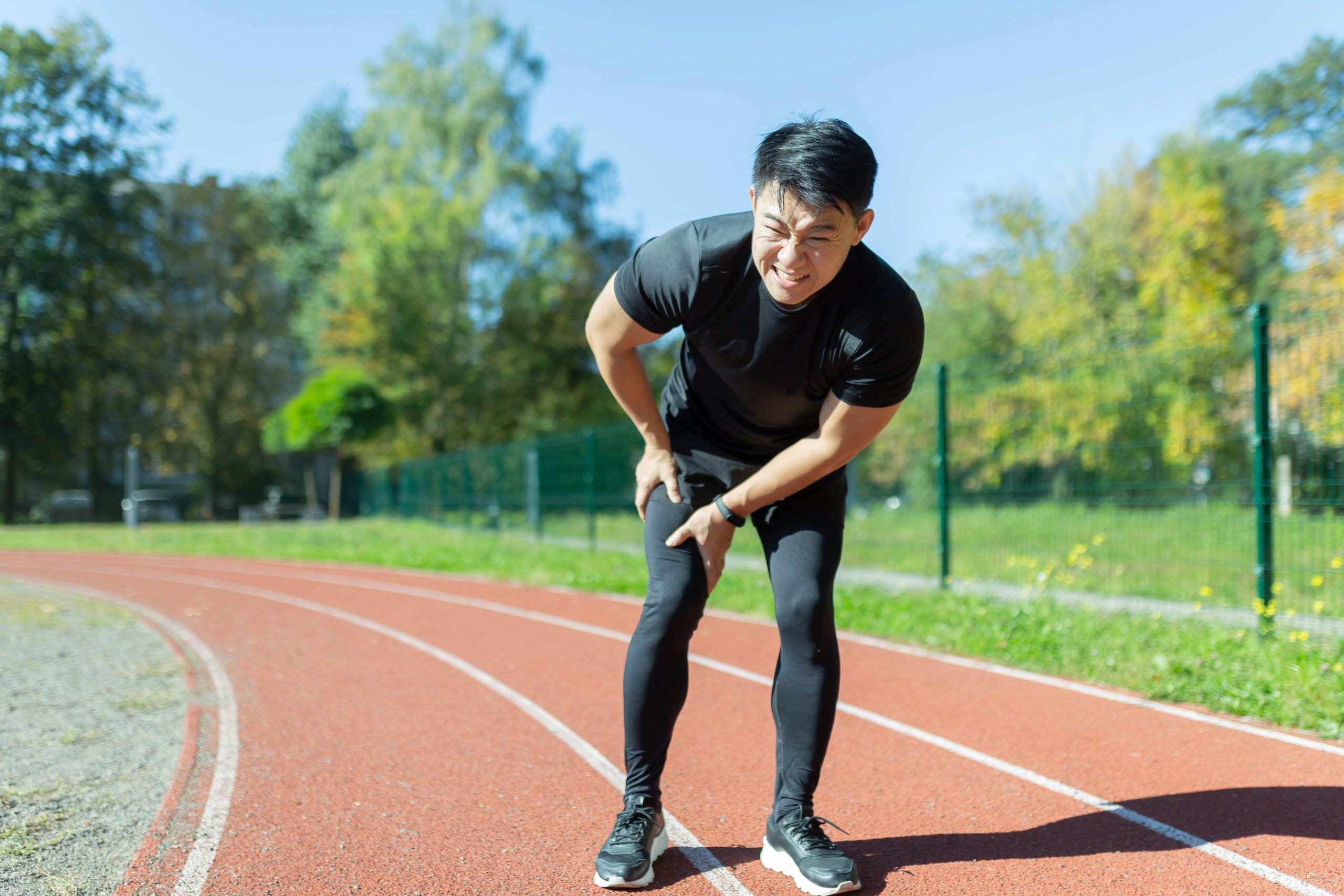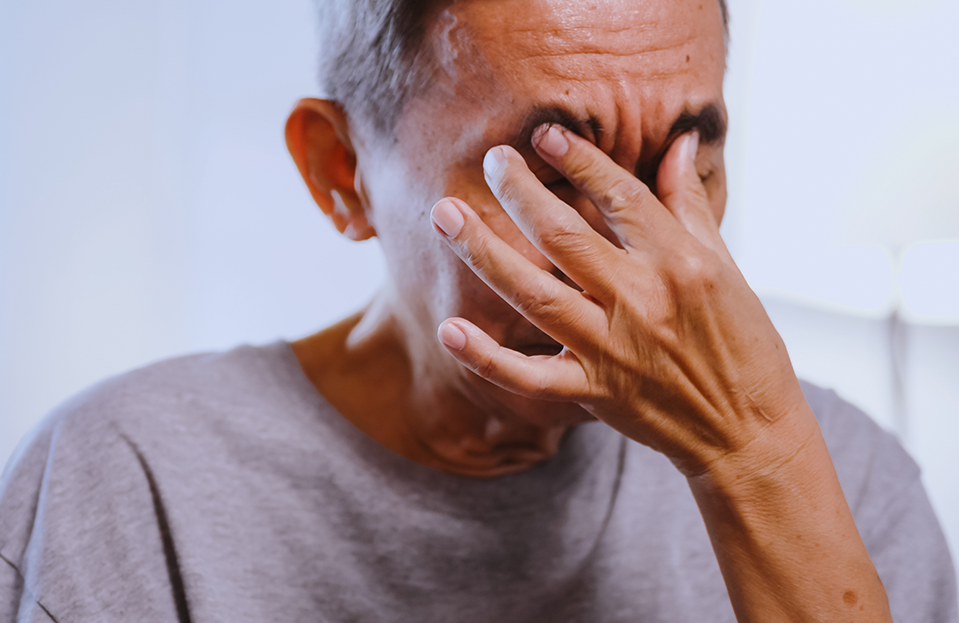How to Relieve Sore Muscles Fast: Effective Tips for Quick Muscle Recovery
15 March 2021

Are sore muscles leaving you feeling uncomfortable and hindered in your daily activities? Whether it’s from an intense workout or a long day of physical exertion, muscle soreness can be a real pain. But don’t worry, we’ve got you covered! In this guide, we’ll explore various techniques and remedies on how to get rid of sore muscles. From simple home remedies to professional advice, you’ll find everything you need to get back on track and ease your muscle pain.
“What to do about intense muscle pain? Did you get a little too fanatical at the gym?
Understanding Sore Muscles
Understanding the root causes of muscle soreness can help you better navigate and address the issue, and get the answer to the question of how to relieve sore muscles fast. During exercise, particularly when you challenge yourself with new movements or higher intensity, your muscles experience small tears in the muscle fibres. This damage triggers an inflammatory response as your body works to repair and rebuild the affected tissues. The inflammation is what causes the pain and discomfort commonly associated with muscle soreness.



The microscopic damage to your muscle fibres during physical activities is a natural part of the muscle-building process. This process is known as exercise-induced muscle damage (EIMD). While it may sound alarming, EIMD is a necessary step towards improving your strength and fitness levels.
It’s important to note that not all muscle soreness is the same. Delayed onset muscle soreness (DOMS) refers to the soreness you feel within 24 to 72 hours after exercise. DOMS is more prevalent when you engage in activities that your muscles are not accustomed to or if you increase the intensity or duration of your workouts.
Now that we have a clearer understanding of the underlying mechanisms of muscle soreness, let’s explore some effective ways to relieve sore muscles fast and minimise the impact it has on your daily life.
By incorporating the strategies on how to relieve sore muscles outlined in this guide, you can effectively manage and alleviate muscle soreness, allowing you to continue pursuing your fitness goals and maintaining an active lifestyle.
Keep in mind that the key is to listen to your body, be patient, and gradually introduce new exercises or intensify your workouts. Consistency and proper self-care will go a long way in reducing muscle soreness and helping you achieve your desired results.
So, let’s dive into the various techniques and remedies that will help you relieve sore muscles fast, allowing you to stay on track with your fitness journey.
1. Rest and Recovery
When you’re experiencing muscle soreness, giving your body adequate rest is crucial. Resting allows your muscles to repair and rebuild themselves, reducing inflammation and promoting faster recovery. Make sure to take breaks between intense workouts and prioritise sleep to optimise your body’s healing process. So, if you want to know when and how to get rid of sore muscles? Overnight, while sleeping, is the way to go.
2. Apply Heat or Cold
Applying heat or cold to sore muscles can provide significant relief. Heat therapy helps increase blood flow to the affected area, promoting relaxation and reducing stiffness. You can use a warm towel, a heating pad, or take a warm bath to enjoy the benefits of heat therapy. Alternatively, cold therapy helps numb the area and reduce inflammation. Applying an ice pack or a bag of frozen vegetables wrapped in a towel can alleviate muscle soreness effectively.
3. Gentle Stretching and Massage
Engaging in gentle stretching exercises can help alleviate sore muscles. Stretching improves blood circulation and flexibility, reducing muscle tension and soreness. Additionally, you can try self-massage techniques or seek professional massage therapy to target specific areas of discomfort. Massage increases blood flow, reduces muscle tightness, and promotes relaxation.
4. Over-the-Counter Pain Relievers
Over-the-counter pain relievers such as ibuprofen or acetaminophen can provide temporary relief from muscle soreness. However, it’s essential to follow the recommended dosage and consult your healthcare provider if you have any underlying medical conditions or take other medications.
5. Topical Analgesics
Using topical analgesics, such as creams, gels, or ointments, can offer localised relief for sore muscles. These products often contain ingredients like menthol or camphor, which create a cooling or heating sensation and help distract from the pain. Apply the topical analgesic directly to the affected area and gently massage it in for optimal results.
6. Stay Hydrated
Hydration plays a vital role in muscle recovery. Drinking enough water helps flush out toxins and promotes nutrient delivery to your muscles, aiding in their repair and reducing soreness. Ensure you’re drinking an adequate amount of water throughout the day, especially before and after physical activities.
7. Get Moving
While rest is essential for muscle recovery, light physical activity can also help alleviate soreness. Engaging in low-impact exercises like walking or swimming increases blood flow to the muscles, which promotes healing and reduces stiffness. Avoid intense workouts during the recovery phase but keep your body moving to facilitate the healing process.
8. Epsom Salt Bath
Taking a soothing Epsom salt bath can do wonders for relieving sore muscles. Epsom salt contains magnesium sulphate, which can be absorbed through the skin, promoting muscle relaxation and reducing inflammation. Simply add a cup or two of Epsom salt to warm bathwater and soak in it for 20-30 minutes to experience the benefits.
9. Use a Foam Roller
Foam rolling, also known as self-myofascial release, is a technique that involves using a foam roller to apply pressure to specific muscle groups. By rolling the foam roller over the sore muscles, you can release tension, break up knots, and improve blood circulation. Incorporating foam rolling into your post-workout routine can help prevent muscle soreness and aid in faster recovery.
10. Proper Nutrition
Eating a well-balanced diet that includes protein, carbohydrates, and healthy fats is essential for muscle recovery. Protein helps repair damaged muscle fibres, while carbohydrates replenish glycogen stores and provide energy. Including foods rich in antioxidants, such as fruits and vegetables, can also aid in reducing inflammation. Consult a nutritionist or dietitian to create a personalised meal plan that supports muscle recovery.
11. Get Sufficient Sleep
Adequate sleep is crucial for overall muscle recovery and repair. During sleep, your body releases growth hormones that help rebuild muscles. Aim for seven to nine hours of quality sleep each night to optimise the healing process and wake up feeling refreshed and rejuvenated.
12. Stay Active
Maintaining a regular exercise routine is key to preventing muscle soreness in the long run. Gradually increase the intensity and duration of your workouts to allow your muscles to adapt and become stronger. Consistency is key, as regular exercise helps improve muscular endurance and reduces the likelihood of experiencing severe muscle soreness.
13. Listen to Your Body
Pay attention to your body’s signals and adjust your workout intensity accordingly. Pushing through intense pain or ignoring signs of overexertion can lead to prolonged muscle soreness and potential injuries. Give yourself permission to take breaks or modify your workouts to prevent excessive strain on your muscles.
14. Consider Professional Help
If you frequently experience severe muscle soreness or are unsure about the underlying cause, it may be beneficial to seek professional help. A physical therapist or sports medicine specialist can assess your condition, provide targeted treatments, and offer personalised advice to help relieve sore muscles and prevent future discomfort.
The Power of Positivity
Muscle soreness is a common experience for many, but it doesn’t have to hinder your daily life. By following the tips and remedies outlined in this guide, you can effectively relieve sore muscles fast and promote quick muscle recovery. Remember to prioritise rest, incorporate proper nutrition, and explore various techniques such as heat therapy, stretching, and self-massage. With time, patience, and self-care, you’ll be back to your active self in no time. Don’t let muscle soreness hold you back—take control and keep moving forward!
Incorporating these practices into your routine will not only provide relief from sore muscles but also contribute to your overall well-being. It’s important to remember that everyone’s body is different, and what works for one person may not work for another. Be patient with yourself and listen to your body’s needs.
Additionally, it’s worth mentioning that prevention is key when it comes to muscle soreness. Gradually increasing the intensity of your workouts, warming up properly before exercising, and practising good form can help minimise the likelihood of experiencing severe muscle soreness. By taking proactive steps to prevent muscle soreness, you can stay on track with your fitness goals and maintain an active lifestyle.
Lastly, don’t underestimate the power of a positive mindset. Muscle soreness can be challenging, but it’s important to approach it with a proactive and optimistic attitude. Instead of viewing sore muscles as an obstacle, see them as a sign of progress and growth. Embrace the temporary discomfort as a reminder of your hard work and dedication.
Relieving sore muscles fast is possible with the right strategies and a commitment to self-care. Incorporate these tips into your routine, stay consistent, and be patient with your body. Before you know it, you’ll be enjoying the benefits of a pain-free and active lifestyle.
So, the next time you find yourself wondering How to relieve sore muscles fast, remember these effective strategies, stay determined, and get ready to say goodbye to muscle pain and hello to a happier, healthier you.
Disclaimer: The information provided in this article is for educational purposes only and should not substitute professional medical advice. Always consult with a healthcare professional for personalised guidance and treatment options.
You may like these too
“The Hidden Dangers of Varicose Veins: When Ornate Legs Are in Danger”
Discover the unexpected causes, symptoms, and latest varicose vein treatments that can affect your h
24 January 2025
“The Inaudible Burden: How Tinnitus Can Change Your Life”
“Discover the hidden battle against the constant buzz in your ears and learn how to rega
24 January 2025
“Migraine: More than just headaches”
“Discover the hidden causes, effective treatments and tips to overcome the daily battle agains
24 January 2025
How to Lower My High Cholesterol:Tips and Advice for a Healthier Heart
Cholesterol is a common health problem that can lead to serious complications such as cardiovascular
17 April 2024



